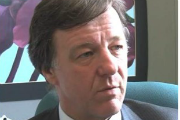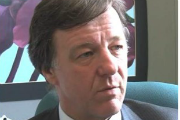General practice is doomed unless we change direction


If we continue as we are, general practice has no future. This is not a political statement blaming any politicians or organisations but a naked practical truth. Within five years, the family doctor providing personal and continuing care, will be gone – it’s happening already.
Within ten years general practice will have become an outreach service for hospitals manned mainly by temporary doctors – that is also happening already. In spite of the high ideals of the Five Year Forward View and the GP Forward View, our system is conspiring to end general practice.
Why is this happening, what are the solutions and what would a better future for general practice look like?
It’s happening because all the effort and resources over the past few years have gone into secondary not primary care. Since I started 35 years ago, our workload as GPs has tripled. There are three times as many patients over 85, escalating long term disease with increasing demands on us from hospitals and patients.
The centre and the media are stuck in a vernacular that undervalues, undermines and then underfunds general practice
Yet the number of GPs per patient has remained more or less the same. Conversely, the number of specialists in hospital has grown by three times to meet this extra demand. So whereas there were more than three times as many GPs as consultants when I started, today, consultants outnumber GPs. And it is getting worse.
We were promised five thousand more GPs but our number actually went down last year and then by a further thousand this year.
There are three reasons why we are locked in to institutionalized specialism. First, our medical schools, funded through hospitals, are designed to produce specialists. General practice isn’t taught as a specialty – it is just assumed that if you do all the specialties then you know what General Practice is… Unsurprisingly only 20% of new doctors become GPs, when we need 50%. If they can’t sort this then general practice will need to be taught outside hospitals. Postgraduate GP education fares little better with barely 50% of fully fledged GPs entering general practice in some areas.
Second is tradition. Specialist medicine has been historically the ‘senior service’ with all the serious managerial and clinical jobs in hospitals. If you want income, status, a professorship, honours or even a peerage then you become a specialist. I remember arguing with Sir Bruce Keogh as to why a specialist had been made the first NHS England medical director given all the talk was of a ‘Primary Care Led’ NHS. He reassured me that the second would come from primary care. It didn’t. The centre and the media are stuck in a vernacular that undervalues, undermines and then underfunds general practice.
Third is funding flows. The Five Year Forward View speaks of supporting health and care based in communities but somehow the money always goes in the opposite direction. Any spare cash is used to top up hospital financial deficits. Hospitals are saved – none has gone bankrupt – while GP practices go under and close. Inadvertently, it seems, general practice’s share of the NHS budget has fallen from over 10% to under 8% over the past 10 years.
What are the solutions? First we must stop the pillage and the plundering of general practice, hemorrhage of its resources and people and restore general practice to its rightful share of the NHS budget. We don’t need more personal income – we are not university vice chancellors – but we do need more GPs, more nurses, more healthcare assistants, physician assistants, pharmacists and social prescribing facilitators – paid for by recurrent funding. No more non-recurrent money with absurd strings attached asking us to open on Sundays or diagnose ever more patients with dementia. Also stop the stifling micromanagement that saps all energy and original thought. If we do these things to stabilize general practice and if patients get the access, personal care and continuity that we want to offer then perhaps doctors will want to be GPs once again.
But future general practice must raise its sights far higher beyond providing good individual care and aim to become the centre of its local health service with community staff attached and then it can achieve its potential of treating more people in the community and keeping more people out of hospital. Then going ever higher it should become the centre of local health working alongside schools, the Local Authority, local business, volunteer and voluntary organisations. Transcending the purely biomedical, embracing the psychosocial and empowering and involving patients and communities as assets rather than as a drain on the health system – thus enabling a healthy local community and sustainable NHS
Social prescribing lies at the centre of this. The GP refers to a link worker, who can motivate and enable patients to self-care and lead healthier lives and create the community architecture that will enable this to happen. It is thus the Trojan horse for developing health creating communities and a new model of general practice that regards the health of individuals and communities as much its responsibility as the adequate treatment of each individual patient
So why are we killing off general practice? It was once the envy of the western world and described as the jewel in the crown of the NHS. It is the very reason that the Commonwealth Fund rates the NHS as the most cost efficient health system in the developed world. It can potentially do so much more to achieve the rhetoric of the NHS as health rather than a sickness service but it now needs an effective and credible implementation strategy – and speaking from the frontline – there is no visible evidence of that yet.
In conclusion, general practice now needs urgent resuscitation. Then it must be supported to enable individuals and communities to become more resilient and more resistant to disease in the first place. Superficial ‘same old’ answers like golden handcuffs and golden hellos are not the answer. They are simply evidence that the system has gone badly wrong in the first place I am disappointed that so many of my younger colleagues are retiring early but I am even more disappointed that our current system made them do so because they dreaded every day the pressures under which they had to work.
If we want to save general practice then it is now or never – now time for patients and media, clinicians and managers, health leaders and politicians to become angry and difficult. Because if we fail general practice then we fail our patients. We fail our communities. We fail the NHS and the NHS itself will ultimately fail.
Dr Michael Dixon is a GP in Devon and Chair of the College of Medicine. This is taken from a speech Dr Dixon is due to give to the Westminster Health Forum today
Visit Pulse Reference for details on 140 symptoms, including easily searchable symptoms and categories, offering you a free platform to check symptoms and receive potential diagnoses during consultations.









